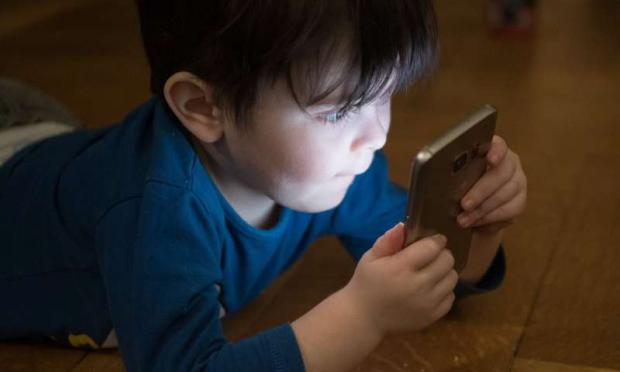
Breaking News
 O'KEEFE INFILTRATES DAVOS WORLD ECONOMIC FORUM
O'KEEFE INFILTRATES DAVOS WORLD ECONOMIC FORUM
 We're Better Than We Think We Are
We're Better Than We Think We Are
 Mike Benz reminds MAGA who the REAL enemy is. And it's our fault…
Mike Benz reminds MAGA who the REAL enemy is. And it's our fault…
Top Tech News
 The day of the tactical laser weapon arrives
The day of the tactical laser weapon arrives
 'ELITE': The Palantir App ICE Uses to Find Neighborhoods to Raid
'ELITE': The Palantir App ICE Uses to Find Neighborhoods to Raid
 Solar Just Took a Huge Leap Forward!- CallSun 215 Anti Shade Panel
Solar Just Took a Huge Leap Forward!- CallSun 215 Anti Shade Panel
 XAI Grok 4.20 and OpenAI GPT 5.2 Are Solving Significant Previously Unsolved Math Proofs
XAI Grok 4.20 and OpenAI GPT 5.2 Are Solving Significant Previously Unsolved Math Proofs
 Watch: World's fastest drone hits 408 mph to reclaim speed record
Watch: World's fastest drone hits 408 mph to reclaim speed record
 Ukrainian robot soldier holds off Russian forces by itself in six-week battle
Ukrainian robot soldier holds off Russian forces by itself in six-week battle
 NASA announces strongest evidence yet for ancient life on Mars
NASA announces strongest evidence yet for ancient life on Mars
 Caltech has successfully demonstrated wireless energy transfer...
Caltech has successfully demonstrated wireless energy transfer...
 The TZLA Plasma Files: The Secret Health Sovereignty Tech That Uncle Trump And The CIA Tried To Bury
The TZLA Plasma Files: The Secret Health Sovereignty Tech That Uncle Trump And The CIA Tried To Bury
New Research Shows What Too Much Screen Time Does To Developing Brains

Within the past decade or so, the way we live our lives has drastically changed for many of us. Screens (smartphones, tablets, computers, televisions) have become such integral parts of our lives that we don't even notice how much of our attention has been given to these devices. By default, children are exposed to more screen time as well and the implications of this are finally coming to the surface. New research shows how more than two hours of screen time per day can harm the structural integrity of white matter in the brains of preschoolers, potentially harming the development of their language and literacy skills.
Please understand — the intention of sharing this information is not to shame, judge or point the finger at any parents. I understand that parenting is difficult and stressful and that sometimes putting on a cartoon or letting them play a game is what it takes in order to get any kind of break for yourself. This is simply meant to raise awareness about an issue in hopes of mitigating the harmful effects.
The American Academy of Pediatrics (AAP) recommends limiting the use for 2-5 year olds to a maximum of one hour a day of what they consider "high quality programming" and ideally, watching it with them to assist them in learning and digesting the new information.
Any more than this amount of time has the potential to harm the brain development of children, according to a study conducted by researchers from the Cincinnati Children's Hospital Medical Center. Those children with more screen time exposure had "lower micro-structural integrity" of brain white matter, an area that is linked to language and cognitive function.
The Study
During the study, which involved 47 children between the ages of 3 and 5, a technology called ScreenQ was used to track screen time in accordance with AAP recommendations. Factors studied included access to screens, frequency and duration of use, what sort of content was viewed and whether or not an adult was present during the viewing, and if the content was discussed with the child or not.
The higher the ScreenQ score, the more screen time occurred. MRI scans were used to evaluate the brain's of the children. It was revealed that more screen time was harmful to the white matter in their brains.
"While we can't yet determine whether screen time causes these structural changes or implies long-term neurodevelopmental risks," Dr. John Hutton, director of the Reading & Literacy Discovery Center at Cincinnati Children's and lead study author said in a news release, "these findings warrant further study to understand what they mean and how to set appropriate limits on technology use."
Screen time is especially harmful for children under two and the AAP recommends that the use of digital media be avoided altogether, with the exception of occasional video chatting.
Avoid Or Limit Screen Time For Children's Health
Keep in mind that if these screens are harmful to your children's health, chances are they are impacting yours as well. Children learn by example, they like to copy what their parents and other adults do. If you are constantly on your phone or in front of the television, then your children might feel more inclined to imitate what you do. If they see you reading a book, getting outside and staying active, then they are more likely to develop those habits for themselves.

 A Report from Middle America
A Report from Middle America
 Nano Nuclear Enters The Asian Market
Nano Nuclear Enters The Asian Market


